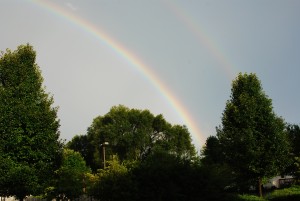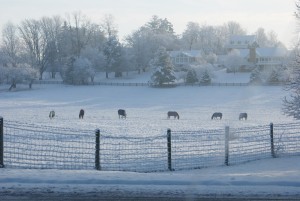by
Mwizenge S. Tembo, Ph. D.
Professor of Sociology
I caught the radio news story in the middle during the second week of August in 2008. “….he grew up poor working in the fields in the American South. His rise to fame in his music career came when……he produced the album …..Hot Buttered Soul …….Isaac Hayes dead at the age of 65.” My reaction was “Oh! My God. I didn’t know he was so young.” Another one of my music heroes was gone. What might have appeared as an insignificant revelation about him in the story confirmed something very fundamental that drew me to his music like a butterfly to sweet nectar. How did an American, Isaac Hayes, influence a teenager who was growing up ten thousand miles away from America deep in Africa in Zambia in the late late 1960s? It happened in the most unlikely way.
I was a poor village kid who was excited to complete Chizongwe Secondary or High School in 1971 in the remote provincial town of Chipata. I got a job in town at a small local volunteer organization Dzithandizeni: Chipata Nutrion Group where an American had just arrived as a volunteer worker. We became good friends. After my first small pay check, I was so proud to buy a small portable record player; about the length of two 2 small lap tops and 4 inches wide. It looked just like a briefcase. I could also only afford to buy my only 45 single of Crosby Stills and Nash “Suite Jude Blue Eyes” for seventy-five cents or forty-five ngwee. I played the record over and over.
As a Christmas gift, Bob the American friend gave me a couple of Long Play Albums. One of the covers had a huge close up photo of the top of a black guy’s shinny shaved bald head; that was Isaac Hayes’ album “Hot Buttered Soul.” By this time I was an undergraduate at University of Zambia and listened to the album so much in my dormitory room in Africa Hall. The music, the story line of the lyrics of the song “By the Time I get to Phoenix”, and everything about it invoked a certain bitter sweet painful melancholy. I did not understand why his music appealed to me so deeply at the time.
The answer came as I listened to subsequent radio news stories of earlier interviews Isaac Hayes had conducted. He said as he was growing up poor and working in the fields in the American Deep South, he was a “hopeless romantic”. That’s it. That’s what drew me to his music. Looking back I have always been a “hopeless romantic” while growing up all the way to my adulthood. What is a hopeless romantic? Some readers may get the mistaken impression that this is a human being who sits passively, frustrated because girls reject his advances, doing nothing but wait while day dreaming about romantic escapades. Nothing could be further from the truth. A hopeless romantic is a person who is always totally consumed by the deep feelings of passion, awareness, perpetual feelings of romance and desire while involved in some of the most seemingly mundane activities to the ordinary soul.

The Lundazi Castle Hotel is best a hopeless romantic. My characters in my novel “The Bridge” spent a night in this Castle Hotel.
A hopeless romantic sees infinite possibilities of vivid and intense human experiences in such normal activities as eating food, taking a walk in a botanical garden, riding a bicycle in a remote Savannah bush path, listening to music, walking in the park, fishing, having sex, reading, living in poverty, driving to the store, working on the farm, seeing the sunrise and the sunset, hearing birds singing, crashing waves on a beach, mourning loved ones, and conversation. When some of these activities are combined with the passion of romantic love, it is like pouring petrol or gasoline on ambers of fire. The elevated emotions flood the senses and create a symbiosis of taste, smell, sight, hearing, painful longing mixed with heavy doses of nostalgic memories. The hopeless romantic suddenly becomes engulfed in deep and overwhelming experiences with intense tearful emotional drama and anguish sometimes reminiscent of the Shakespearean Romeo and Juliet.

A minibus about to travel with a beautiful woman about to board it on the left. This is best for a hopeless romantic.
When Isaac Hayes said he was a hopeless romantic the remark invoked in me those deep memories of the pain and sweet anguish in his music which is the stuff of the soul. The remark validated my lifelong inclination to be drawn to deeply intense soulful music from any genre; from the traditional Mbira music of the Shona people of Zimbabwe in Southern Africa, to the thundering Nigerian Fela Anikulapo Kuti’s 1970s hit “Gentlemani”, to Jim Reeve’s Country intensely romantic love ballads like “A hundred miles to Mariam”, to the American Blue Grass music of “Seldom Scene”, Alison Kraus and Union Station’s “Every Time You Say Goodbye”, and to the heavy metal Quiet Riot’s “Mama Mama let’s not get crazy now”.
The hopeless romantic is not just confined to music but also to readings such as novels. I still remember the most intense romantic experiences of the characters in my few favorite novels down to the page number even though I read these novels decades ago. These are such novels as Charles Dickens’ “David Copperfield”, Mongo Beti’s “Mission to Kala”, and Peter Abraham’s “Mine Boy”. I am hardly surprised that twenty years later I published a sizzling romance novel called “The Bridge” that only a hopeless romantic could write. We should all be thankful and appreciate music heroes such as Isaac Hayes and many others in many genres who especially help validate the intense feelings of all hopeless romantics in us in this wonderful world.



